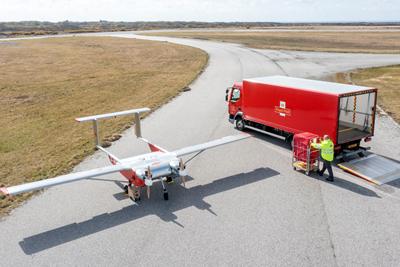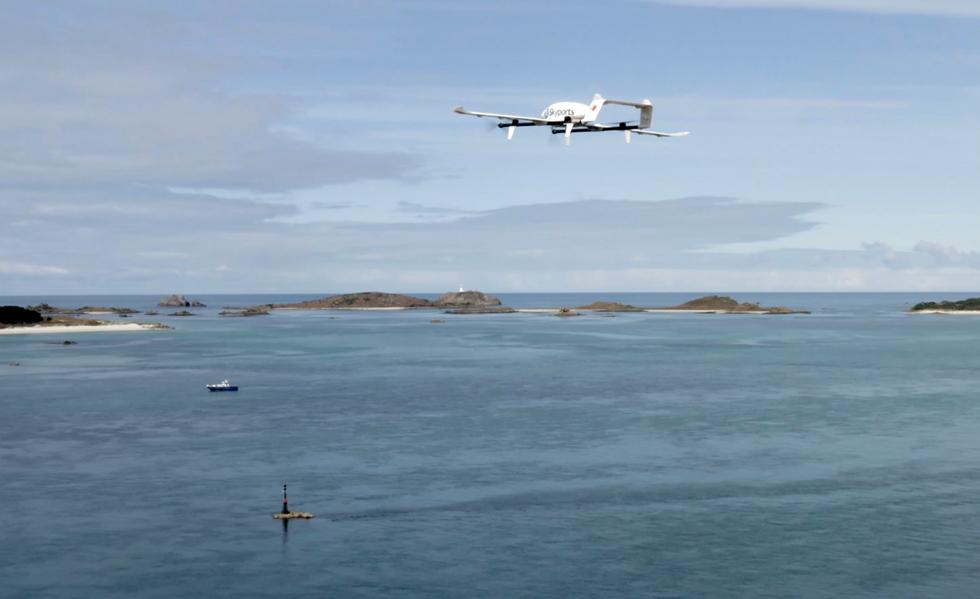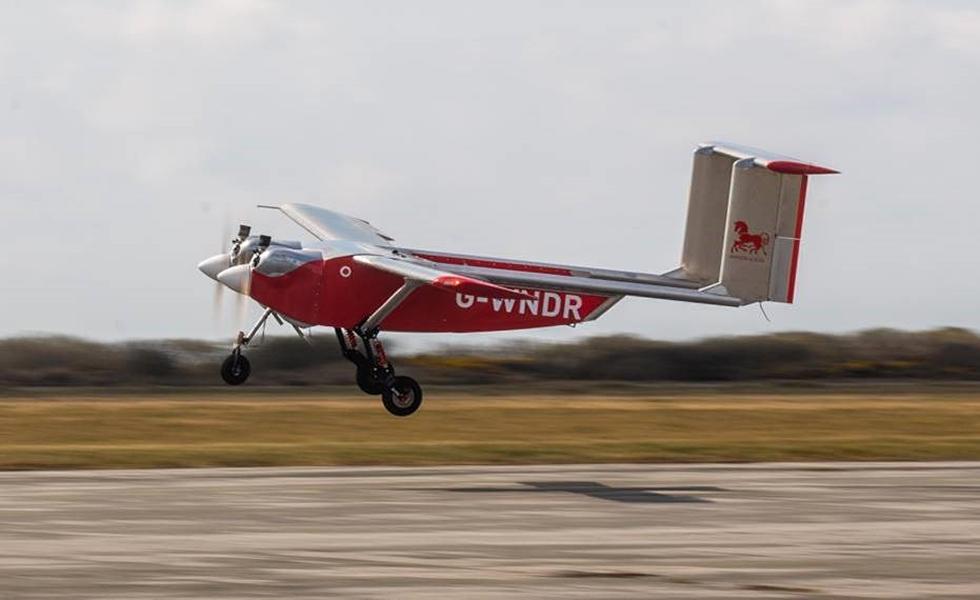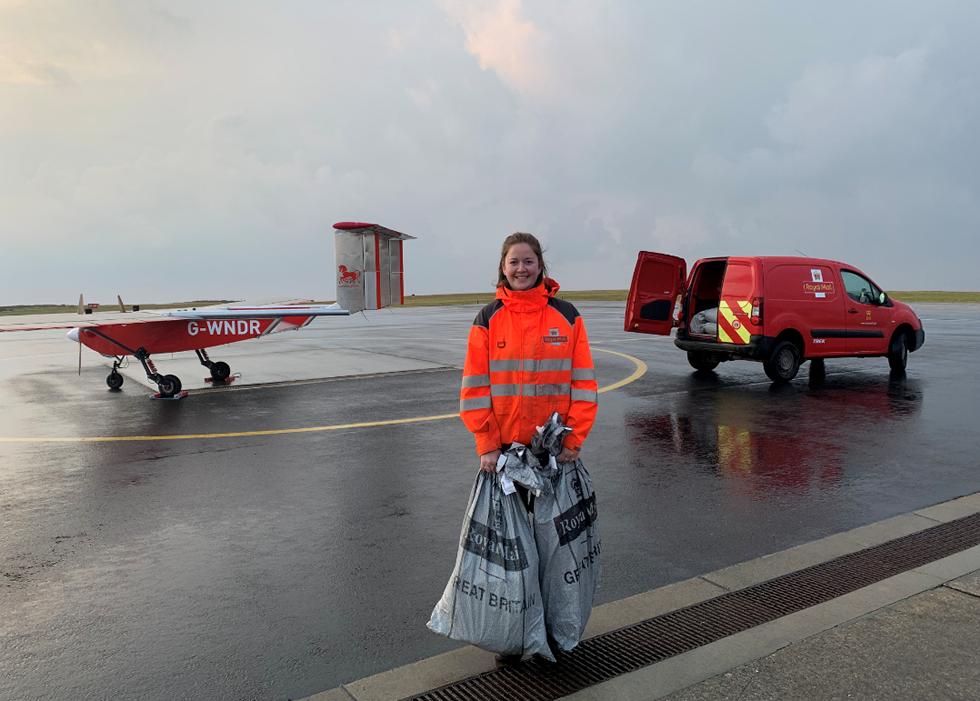Autonomous drone trial flies Royal Mail deliveries to Isles of Scilly

COVID testing kits, PPE and other mail are being flown to the Isles of Scilly’s most vulnerable communities in a large drone that was designed and built by engineers at the University of Southampton.
The University has worked with Royal Mail on the trial of fully autonomous scheduled drone flights that could identify opportunities to support postmen and postwomen in delivering to very remote areas and addresses across the UK.
The Government-funded project, which has been developed in partnership with DronePrep, Skyports, Consortiq Limited, Excalibur Healthcare Services and Windracers Limited, is initially focusing on helping to fight the pandemic.
The Windracers ULTRA Uncrewed Aerial Vehicle (UAV) can carry up to 100kg worth of mail at a time – equivalent to a typical delivery round. The twin-engine drone was created by a team of Southampton engineers led by Professor Jim Scanlan.
Professor Scanlan, Head of the Computational Engineering and Design Group, says: “The ULTRA is the ideal vehicle to complement existing ways to transport mail to the Isles. It can fly at up to one hundred miles an hour so it can get there quickly; it can also operate in poor weather conditions and is not dependent on tides.”
In the latest trials, staff from the University of Southampton with Windracers will oversee flights from mobile control centres on the mainland and the islands’ St Mary's Airport. The route takes the UAV roughly 70 miles out of sight before it reaches its destination.
Ahead of the first flights, Southampton’s Professor Tom Cherrett led a team testing the impact that vibrations from the drone could have on the cargo to determine the best way to make deliveries without causing any damage.
Professor Cherrett, Head of the Transportation Research Group, says: “These trials will not only help us see the capability of the ULTRA, they will also be invaluable in getting the logistics right on both ends of the operation. As well as providing a means to make urgent deliveries in the immediate circumstances, this will all contribute to the learning process of how autonomous systems will function alongside traditional supply chains in the future.”
Nick Landon, Chief Commercial Officer at Royal Mail, says: “This is a hugely significant project for us, and we are incredibly proud to find ways to support the more remote and isolated communities we serve. This is part of our constant drive to incorporate the best and most innovative technologies into our network. We’ve seen a huge increase in parcel volumes since the start of the pandemic, and this is just one of the ways we are looking to support our postmen and postwomen in delivering fast and convenient services for all of our customers while reducing our carbon emissions.”
This is the second time the University team and Windracers have responded to the potential need to transport urgent medical supplies to remote locations during the pandemic. In May 2020, they successfully flew a consignment of medical supplies across the Solent to the Isle of Wight with the ULTRA as part of a trial with Solent Transport.


